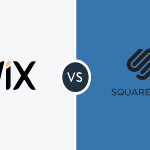In the ever-evolving landscape of digital presence, a robust and engaging website is a vital asset for businesses across industries. When it comes to creating a website, two main options stand out: traditional web development and website builders. As an IT manager, choosing between these approaches requires careful consideration of various factors that align with your business goals and resources. In this article, we’ll delve into the key aspects of both options to help you make an informed decision.
Understanding Web Development
What is Web Development?
Web development involves creating custom websites from scratch using programming languages like HTML, CSS, and JavaScript. This approach offers unparalleled flexibility and the ability to tailor every aspect of the website according to your brand’s unique requirements. From complex e-commerce platforms to dynamic web applications, web development provides a canvas where your imagination sets the limit.
Benefits of Web Development
Unlimited Customization: With web development, you have complete control over the design, functionality, and features of your website. This allows you to create a truly unique and tailored digital experience for your users.
Scalability: Custom-built websites can be designed to scale as your business grows. You can implement features and functionalities as needed without being constrained by the limitations of pre-built templates.
Performance Optimization: Web developers can optimize every aspect of your website’s performance, from loading speed to responsiveness, ensuring a seamless user experience across devices.
Security: Custom websites often offer better security options. Web developers can implement stringent security measures to protect your data and users’ information.
SEO: Custom websites can be optimized for search engines from the ground up, potentially leading to better search engine rankings and visibility.
Challenges of Web Development
Time-Consuming: Developing a custom website takes time, as every aspect needs to be coded and tested thoroughly. If your business requires a quick online presence, this might not be the most efficient option.
Resource Intensive: Building a website from scratch requires skilled developers, designers, and QA testers. It might also involve ongoing maintenance and updates.
Exploring Website Builders
What are Website Builders?
Website builders are user-friendly platforms that allow you to create websites without extensive coding knowledge. These platforms provide templates and drag-and-drop tools that enable you to design and launch a website relatively quickly.
Benefits of Website Builders
Speed of Deployment: Website builders enable rapid development. If your business needs a simple online presence, you can have a basic website up and running within a short span of time.
User-Friendly: You don’t need to be a coding expert to use website builders. The intuitive interfaces make it accessible to individuals with limited technical skills.
Cost-Effective: Website builders often come at a lower upfront cost compared to custom development. They might also include hosting and maintenance, reducing ongoing expenses.
Updates and Maintenance: Website builders typically handle updates and security maintenance, saving you time and effort.
Challenges of Website Builders
Limited Customization: While website builders offer templates and design flexibility, they can’t match the level of customization possible with web development. Your website might end up looking similar to others using the same platform.
Scalability Issues: As your business grows, you might outgrow the capabilities of a website builder. Adding advanced features might not be as seamless as with custom development.
SEO Constraints: Some website builders have limitations when it comes to implementing advanced SEO strategies, potentially affecting your site’s visibility in search engines.
Making the Right Choice for Your Business
Factors to Consider
Budget: Consider your budget constraints. Custom web development often requires a larger upfront investment, while website builders can be more cost-effective initially.
Timeline: If you need an online presence quickly, a website builder might be the better choice. Custom development takes time due to coding, testing, and implementation.
Scalability: Evaluate your business growth projections. If you foresee significant expansion, custom development might be more suitable for accommodating future needs.
Uniqueness: If a unique and distinct online identity is crucial for your brand, custom development is the way to go. Website builders might lead to a more generic appearance.
Features and Functionality: Consider the specific features and functionalities your website requires. Custom development provides the freedom to incorporate complex functionalities tailored to your business.
The Role of Skilled Professionals
Whether you choose web development or a website builder, the involvement of skilled professionals is paramount.
Hire QA Tester: Quality assurance plays a crucial role in ensuring your website functions flawlessly across different browsers and devices. Hire QA tester to catch and fix issues before they affect user experience.
Hire ReactJS Developers: If you opt for custom development, hire ReactJS developers who can bring your website to life with interactive and dynamic components. ReactJS is known for its performance and flexibility, making it a popular choice for modern web applications.
In the realm of web development, the choice between traditional development and website builders hinges on your business’s unique requirements and resources. Custom web development offers unmatched flexibility and tailor-made solutions, while website builders provide a quick and budget-friendly way to establish an online presence. Consider your budget, timeline, scalability needs, and desired level of customization when making your decision. Regardless of your choice, involving skilled professionals like QA testers and ReactJS developers will contribute to the success of your digital venture.









